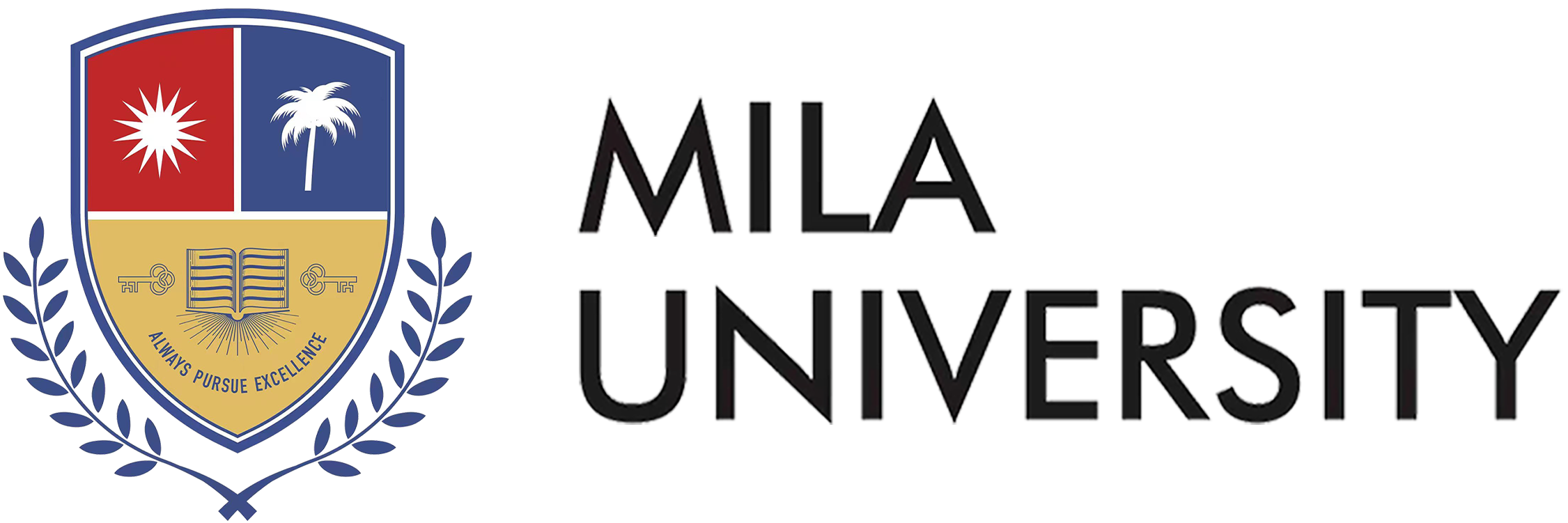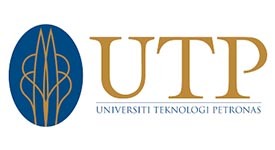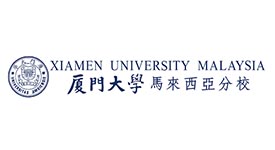Computer Engineering Course in Malaysia : Complete Guide for International Students

- Home
- Specialization
- Computer Engineering
Study Computer Engineering Course in Malaysia - Fees, Admission, Career, and Universities
It is a combination of several disciplines, from Computer Science to Electronics to the development of Computer Hardware and Software. A student studying Computer Engineering in Malaysian University will learn to build everything from small parts and circuits to large computer systems. This field will teach students to design, construct and repair any digital systems. jobs in this field cover a variety of products and processes from Hardware to Software. Computer Engineers are supposed to design & develop computer systems and other technological devices. The Hardware Engineers research, design, develop and test computer systems and other components as well like the memory devices, processors, networks and routers.
What is Computer Engineering all about?
Computer engineering is a multidisciplinary field that combines elements of both electrical engineering and computer science. It focuses on the design, development, and integration of computer systems and networks, as well as the hardware and software components that make up these systems. Here are some key aspects of computer engineering:
-
Hardware Design: Computer engineers are involved in designing and building the physical components of computers and digital systems. This includes microprocessors, memory devices, circuit boards, and other hardware components.
-
Software Development: Computer engineers also work on software development, including programming, software design, and system software development. They create the software that runs on computer systems, from operating systems to application software.
-
Embedded Systems: Many computer engineers work on embedded systems, which are specialized computer systems integrated into other devices, such as automotive control systems, medical devices, and smart appliances.
-
Networking: Computer engineers design and maintain computer networks, including local area networks (LANs) and wide area networks (WANs). They work on protocols, routers, switches, and other network infrastructure.
-
Cybersecurity: As digital threats and cyberattacks become more sophisticated, computer engineers play a crucial role in designing and implementing security measures to protect computer systems and networks.
-
Digital Signal Processing (DSP): DSP is an important area within computer engineering that focuses on processing and analyzing digital signals, such as audio, video, and sensor data.
-
Robotics: Computer engineers are involved in the development of robots and robotic systems, including hardware design, control algorithms, and sensory systems.
-
Computer Architecture: This field deals with the design of computer systems, including the organization and structure of processors, memory hierarchy, and system performance optimization.
-
Computer Vision and Image Processing: Computer engineers work on technologies related to image and video processing, which have applications in fields like healthcare, entertainment, and security.
-
Artificial Intelligence and Machine Learning: Computer engineers are increasingly involved in the development of AI and machine learning systems, which require both hardware acceleration and software development skills.
-
Cloud Computing: Computer engineers work on designing, building, and managing cloud-based infrastructure and services that enable businesses and individuals to access computing resources over the internet.
-
IoT (Internet of Things): IoT involves connecting everyday objects to the internet, and computer engineers work on the hardware and software required to make these connections and process the data generated by IoT devices.
Computer engineering is a dynamic field that evolves rapidly with advances in technology. Professionals in this field often need a strong foundation in mathematics, physics, and computer science, as well as the ability to adapt to new technologies and solve complex problems. They play a critical role in shaping the digital world we live in today.

List of Computer Engineering Universities in Malaysia with courses

Courses:
157World Rank:
580Scholarship: Yes
157
Courses:
19World Rank:
Scholarship: Yes
19
Courses:
26World Rank:
Scholarship: Yes
26
Courses:
76World Rank:
Scholarship: Yes
76
Courses:
34World Rank:
269Scholarship: Yes
34
Courses:
145World Rank:
Scholarship: Yes
145
Courses:
21World Rank:
174Scholarship: Yes
21
Courses:
28World Rank:
362Scholarship: Yes
28
Courses:
41World Rank:
1201-1400Scholarship: Yes
41
Courses:
26World Rank:
1201-1400Scholarship: Yes
26
Courses:
56World Rank:
148Scholarship: Yes
56
Courses:
74World Rank:
516Scholarship: Yes
74Courses:
13World Rank:
Scholarship: Yes
13
Courses:
28World Rank:
555Scholarship: Yes
28
Courses:
74World Rank:
Scholarship: Yes
74
Courses:
97World Rank:
801-850Scholarship: Yes
97Duration of Computer Engineering Degree in Malaysia
The duration of a computer engineering degree in Malaysia can vary depending on the level of the program and the specific university or college you choose to attend. Generally, computer engineering programs in Malaysia are offered at the undergraduate level, and the most common options are a Bachelor of Engineering (BEng) or a Bachelor of Science (BSc) in Computer Engineering. Here's a typical breakdown of the durations:
|
Level |
Duration |
|
Bachelor's Degree |
4 years |
|
Master's Degree |
1 - 2 years |
|
PhD |
1 - 2 years |
Entry Requirement and Qualifications of Computer Engineering in Malaysia
The eligibility criteria to get into an university for Computer Engineering in Malaysia areas follows:
Diploma
- SPM / SPMV / O Level - 3 credits including Mathematics, OR
- STPM - 1 principal pass and SPM / O Level credit in Mathematics, OR
- UEC - 3 subjects at grade B including Mathematics
Bachelor’s Degree
|
Foundation / Matriculation |
Pass with a minimum CGPA of 2.0 and credit in SPM Maths or equivalent |
|
STPM |
Pass with a minimum grade C in at least 3 subjects (including Maths) AND credit in Maths in SPM or equivalent |
|
UEC |
Pass with a minimum B in 5 subjects (including English and Maths) |
|
A-Level |
Pass (including Maths) |
How much does it cost to study Computer Engineering in Malaysia
Here are the estimated tuition fees for studying Computer Engineering in Malaysia:
|
Programme |
Estimated Fees (per year) |
|---|---|
|
Bachelor's Degree |
RM 60,000 - RM 150,000 |
|
Master's Degree |
RM 30,000 - RM 60,000 |
|
PhD |
RM 30,000 - RM 70,000 |
Studying in public universities is often much cheaper than in private universities in Malaysia. Be sure to check out local public universities too!
What are jobs after completing Computer Engineering in Malaysia?
A wide range of careers in Computer Engineering at the University of Malaysia
- Computer Engineer
- Software Engineer
- Network administrator
- System Engineer
- Computer Architect
- Network Architect
- Application Developer
- Technical Support
- Industrial Engineer
- Electrical R&D Engineer
- Test Engineer
Universities in Malaysia that offer Computer Engineering Programs
One of the most challenging aspects of pursuing a Computer Engineering degree is the daunting task of selecting the right engineering school to enroll in. This decision can pose a significant challenge for a multitude of reasons. These obstacles range from financial concerns like tuition fees and the financial resources required to potentially relocate to a different city or even another country, to ensuring that you meet the specific admission requirements of your preferred institution.
To assist you in this important decision-making process, we've compiled a list of some of the top universities in Malaysia renowned for offering exceptional Computer Engineering programs:
1. University Malaya
Universiti Malaya (Kuala Lumpur), often regarded as Malaysia's oldest and most esteemed private university, has earned a distinguished reputation for its commitment to producing well-rounded and highly competitive graduates.
UM provides an extensive array of programs catering to both undergraduate and postgraduate students across over 12 faculties, in addition to four academies and centers. Moreover, UM boasts a comprehensive and holistic student support system designed to equip students with essential skills and valuable exposure to enhance their educational journey.
2. Tunku Abdul Rahman University College
Tunku Abdul Rahman University College (TAR UC) : With a rich history spanning over fifty years since its inception as TAR College in 1969, Tunku Abdul Rahman University College (TAR UC) has consistently delivered top-tier teaching and learning experiences. Its distinguished faculty, combined with meticulously crafted programs, ensures that students receive a high-quality education that prepares them effectively for their future endeavors. It's noteworthy that TAR UC offers a cost-effective alternative for studying in Malaysia, with tuition fees that are relatively more affordable compared to other private universities in the country.
3. Asia Pacific University of Technology and Innovation (APU)
The Asia Pacific University of Technology and Innovation, located in Kuala Lumpur, Malaysia, is a distinguished campus university renowned for its dedication to empowering students to cultivate lifelong career prospects. As a leading technology-focused institution, its primary goal is to equip students with the skills and knowledge necessary for long-lasting success in their chosen fields.
4. Taylor’s University
Taylor’s University, a prominent educational institution in Malaysia, provides a diverse range of academic programs across various fields of study. These encompass areas such as Accounting, Finance, Arts, Computer Science, Business, Hospitality and Tourism, and many more. With a rich history spanning several decades in the education sector, Taylor’s University has established itself as a reputable institution.

One of its notable strengths lies in its extensive global network, comprising over 3,000 career partners. This network facilitates valuable opportunities for students, and a significant testament to this is the fact that 3,000 of Taylor's students engage in internships with esteemed employers each year, enhancing their real-world experience and employability.
5. UCSI University
UCSI University in Kuala Lumpur stands as one of the foremost higher education institutions in Malaysia, and its commitment to academic excellence is evident in its international ranking. In the QS World University Ranking for 2022, UCSI University is ranked at an impressive 347.
6. Monash University Malaysia
Monash University Malaysia offers students a unique opportunity to attain a prestigious Australian degree through its branch campus located in Sunway City, Malaysia. This international campus provides a high-quality education that is on par with Monash University's standards in Australia.
Monash University is ranked in the top 60 universities in the world according to the QS World University Rankings 2022 and is also number 57 on the Times Higher Education list of the World University Rankings 2022.
7. International University of Malaya-Wales
The International University of Malaya-Wales (IUMW) was established through a collaborative effort between two distinguished institutions: the University of Malaya (UM) and the University of Wales in the United Kingdom (UK). This partnership has yielded a unique educational institution in Malaysia.
IUMW is notable for being the first university in Malaysia to provide a Dual Award program with credit transfer options for its various academic programs. This arrangement allows students to pursue their studies locally and gain valuable international exposure. Students at IUMW have the opportunity to study abroad in the United Kingdom for a duration of up to three years, enhancing their global perspectives and enriching their educational experience.










